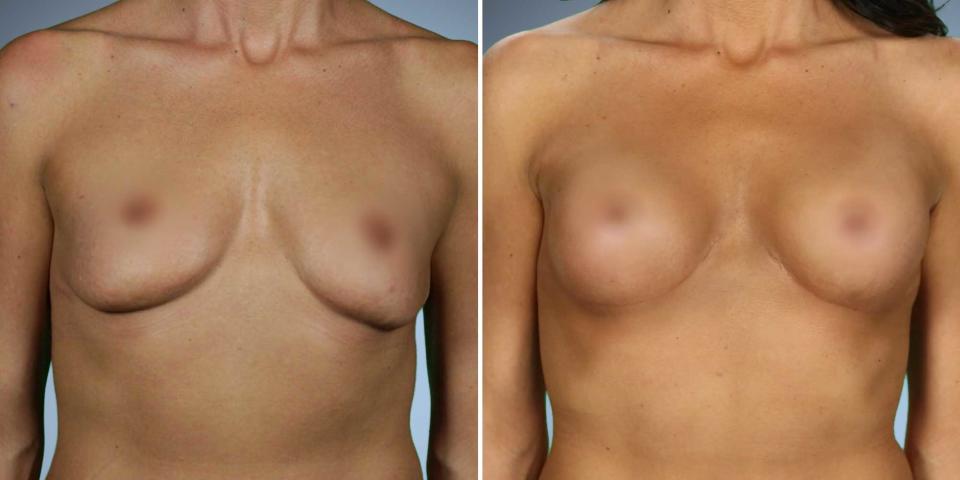4 Things You Need to Know to Make Sure Your Cosmetic Surgery Doesn't Get Botched

Despite what you might think, any kind of cosmetic surgery, whether non-invasive (fillers and injections) or full-on surgery (boob jobs and liposuction), is always risky. Before you book a cosmetic procedure, first read the below tips from Dr. Terry Dubrow and Dr. Paul Nassif. As you might guess from their hit show Botched, which airs on Tuesday nights on E! at 9 p.m. EST, they know a thing or two about botched plastic surgery and how you can prevent it.
1. Even non-invasive procedures have major risks you need to consider, and things like fillers can cause blindness. According to Dr. Dubrow, there are about 17 million cosmetic procedures done in this country each year and only about 1.7 million of them are surgical procedures. "It's assumed that the cosmetic surgery ones have all the risk and the non-invasive ones have none of the risk," Dr. Dubrow explains. "But although the risks are less for non-invasive [procedures], they still have very significant risks. What we're seeing now as a risk with fillers put in the nose, cheeks, and temples, which wasn't recognized up until recently, is blindness. It's now significant enough that our societies [professional associations] all feel that on the consent forms, we need to warn patients that you could go blind from this. So [getting fillers] isn't as benign as you think it is."
2. Don't settle on just anyone to perform your procedure. Beware of surgeons who are not board-certified plastic surgeons. Dr. Dubrow says 30 to 40 percent of the cosmetic surgeries that are done in this country are done by non-plastic surgeons who call themselves "cosmetic surgeons." Surgeons who are certified by the American Board of Plastic Surgery are held to certain standards, and choosing a doctor who meets these standards can help to minimize your risk. Dr. Dubrow says, "I think the best advice that you can give someone if they're going to have plastic surgery is to make sure their doctor is actually formally trained. Ask them one simple question: 'Do you have credentials to do this in a major hospital?' Because if someone isn't a real plastic surgeon, a hospital won't let them do that operation on someone."

3. You wouldn't go on a date with someone without stalking them on social media first, so why wouldn't you do the same for a plastic surgeon? After you've thoroughly researched the doctor's website and photos, Dr. Nassif suggests going to Realself.com to read satisfaction reviews of the procedure or checking out chat rooms for feedback on a particular doctor. "Every doctor has a few negative reviews, but I mean, you want to get the general overall feeling from that," Dr. Nassif explains. "You need to know what it is you're getting."
4. Ask yourself, "Is the physical change I want worth potentially risking my life?" Dr. Dubrow says, "The other thing I would recommend to avoid being botched is make sure that if you're going to have a procedure, that it's something you really want to have. And that the advantages outweigh the disadvantages. People think [plastic surgery] is just a little nip/tuck, getting a little work done, but you know, you can have [a] little work done and be put six feet under. Or end up in our offices with a total disaster. So, take it very, very seriously, and think about it very carefully before you do it. And then, if you do it, you should come to either [Dr. Nassif] or me, that's it. There's no other way - everyone else sucks. Oh, I amuse myself this early in the morning."
Get non-boring fashion and beauty news directly in your feed. Follow Facebook.com/CosmoBeauty.
Follow Brooke on Twitter.

